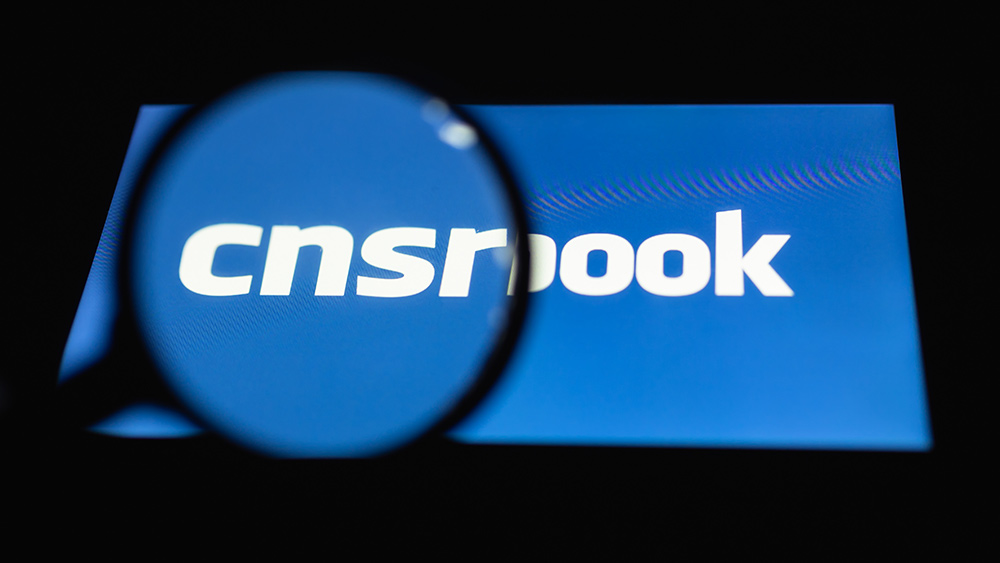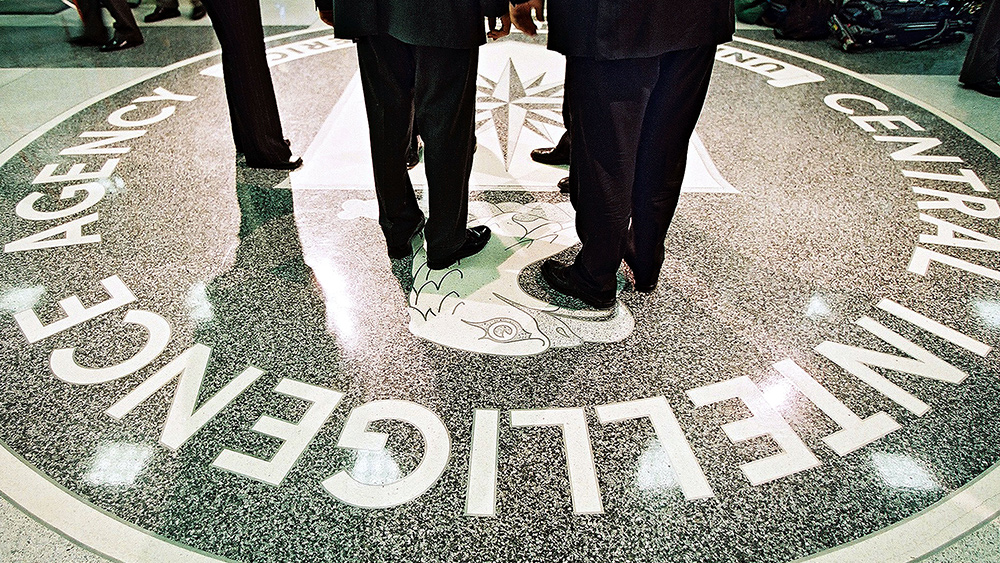US Psy-Ops exposed: Washington isn’t concerned about morals, it’s worried about getting caught
09/26/2022 / By News Editors

A bombshell Washington Post investigation has revealed that the Pentagon is conducting a “sweeping audit of how it conducts clandestine information warfare,” after a variety of social media accounts, which its operatives used to target foreign audiences in elaborate psychological warfare efforts, were exposed.
(Article by Felix Livshitz republished from RT.com)
The accounts violated platform rules and were eventually busted by researchers and the social networks they weaponized.
US defense policy advisor Colin Kahl is reported to have demanded that every Pentagon division engaged in “psychological operations online” provides a full account of their activities by October, due to high-level concerns that “attempted manipulation of audiences overseas” by the Department of Defense have significantly overstepped the mark.
Those fears were apparently stoked by the release of a landmark report in August by social media analytics firm Graphika, and the Stanford Internet Observatory, which found that over the past five years, hundreds of accounts disseminating pro-Western narratives – such as a recent propaganda blitz that “advanced anti-Russia narratives,” including criticism of the Kremlin’s “imperialist” war in Ukraine – were likely being run by the Pentagon’s Centcom unit.
Centcom is responsible for military operations of every sort across 21 countries in the Middle East, North Africa and Central and South Asia. According to Graphika’s report, among the accounts taken down was a fictional Persian-language news outlet that shared content reposted from US state-run propaganda platforms Voice of America Farsi and Radio Free Europe.
One account was found to have posted content claiming that relatives of deceased Afghan refugees had reported bodies of their loved ones being returned from Iran with missing organs. The obvious purpose of the exercise was to prevent Afghans fleeing to the neighboring country. Quite why isn’t clear, although a defense official told the Washington Post that such activity would “absolutely be a violation of doctrine and training practices.”
Strikingly, the newspaper also independently learned that in 2020, Facebook permanently banned fake accounts, created by Centcom to counter claims that COVID19 may have escaped from US biological weapons lab Fort Detrick. In other cases, the accounts even promoted information deemed by fact-checkers to be false.

FILE PHOTO: Military Personnel stand guard outside the US Army Medical Research Institute of Infectious Diseases at Fort Detrick. © Olivier DOULIERY / AFP
Sometimes, the Pentagon went to the extent of using “deep fake” tech to create artificial personas, in the belief that “what appears to be, say, an Afghan woman or an Iranian student might be more persuasive than if they were openly pushed by the US government.”
The only problem is you got caught
The audit ordered by Kahl is sweeping and comprehensive. He wants to know “what types of operations have been carried out, who they’re targeting, what tools are being used and why military commanders have chosen those tactics, and how effective they have been.”
The Post without irony frames concerns about the Pentagon’s psychological warfare tactics as being related primarily to these efforts compromising Washington’s purported “moral high ground” globally, with a nameless diplomat quoted as saying:
“Generally speaking, we shouldn’t be employing the same kind of tactics that our adversaries are using…We are a society that is built on a certain set of values. We promote those values around the world and when we use tactics like those, it just undermines our argument about who we are.”
Residents of the Global South – including many of the countries that fall under Centcom’s purview – might bat an eyelid at talk of “values.” Given how the US has operated in their countries through overt intervention and clandestine meddling for decades.

FILE PHOTO: Joint US military and civilian officers monitor TV and computer screens at headquarters for Northcom’s Domestic Wing Center. © Robert Nickelsberg / Getty Images
So, what actually accounts for the sudden surge of internal concern about the excesses of Pentagon psychological warfare operations? Clues are littered elsewhere in The Post’s report. For example, one peculiar passage notes that representatives of Facebook and Twitter directly contacted the Pentagon to warn them they’d been busted.
As far back as Summer 2020, David Agranovich, Facebook’s Director of Global Threat Disruption, who himself spent six years at the Pentagon then served as Director for Intelligence at the elite White House National Security Council, got in touch with his former coworkers to warn them that “if Facebook could sniff them out, so could US adversaries.”
“His point was, ‘Guys, you got caught. That’s a problem.’”
Clearly, senior staff at major social networks consider their platforms being weaponized for information warfare purposes to be thoroughly acceptable, as long as it’s US military and intelligence operatives doing it, and they don’t get “burned” in the process. On what other occasions Facebook, Twitter et al have provided American spies with helpful pointers on improving their opsec and concealing and conducting their nefarious activities more effectively, and how, is an open question.
Don’t tread on me
Even more revealingly, The Post also notes that legislation ratified by Congress in December 2019 unbridled the Pentagon to manage “clandestine psychological operations” which it was previously prohibited from engaging, leading highers to get “really excited” and “very eager to utilize these news authorities” as a result. Defense contractors were “equally eager to land lucrative classified contracts to enable clandestine influence operations.”
In the process, the US military’s cloak-and-dagger tactics may have crossed into “what the CIA has claimed as its covert authority,” which led Langley to become “perturbed”. While The Post doesn’t acknowledge it, this was undoubtedly the Pentagon’s undoing.
Spying agencies are notoriously protective of their respective beats. Squabbling between the CIA and NSA is a well-known, perpetual phenomenon, and friction, distrust, and disputes over which was in charge of what has been blamed for some of the intelligence failures that allegedly led to 9/11.
Another entity encroaching on its turf would not be tolerated by Langley – so it would be understandable if the CIA, which celebrated its 75th birthday on 18 September, felt it necessary to throw its new rival under the bus for its own purposes.
Graphika, which exposed the Pentagon’s online manipulation operations, is an extremely well-connected firm, having conducted high-level work for numerous government agencies. It would be easy for Langley to point its researchers in the right direction, or at least leave a trail of breadcrumbs for them to follow.
In December 1963, former US President Harry S. Truman, who created the Agency when he signed the National Security Act of 1947 into law, expressed grave concerns about what it had mutated into.
He’d originally envisaged an effective newswire service, providing the Oval Office with regular information to inform foreign policy decisions, but had quickly become “disturbed” that the “quiet intelligence arm of the President” had quickly “been diverted from its original assignment,” and grown into “an operational and at times a policy-making arm of the government.”
Noting that “this has led to trouble and may have compounded our difficulties in several explosive areas,” Truman urged for the CIA to be reined in, and returned to his original vision. His entreaties were ignored – today, the Agency is, in many ways, the true government of the US. And even the almighty Pentagon isn’t safe.
Read more at: RT.com
Submit a correction >>
Tagged Under:
big government, Big Tech, computing, conspiracy, corruption, cyber war, deception, deep state, disinfo, Facebook, fake news, information technology, insanity, military, Pentagon, politics, propaganda, Psy-Ops, Social media, tech giants, technocrats, twisted, Twitter
This article may contain statements that reflect the opinion of the author
RECENT NEWS & ARTICLES
COPYRIGHT © 2018 FAKEBOOK.NEWS
All content posted on this site is protected under Free Speech. Fakebook.news is not responsible for content written by contributing authors. The information on this site is provided for educational and entertainment purposes only. It is not intended as a substitute for professional advice of any kind. Fakebook.news assumes no responsibility for the use or misuse of this material. All trademarks, registered trademarks and service marks mentioned on this site are the property of their respective owners.



















